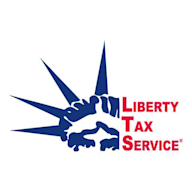Search results
Steps to File a Tax Return
- 1. Gather your paperwork such as W-2 from all your employers.
- 2. Choose your filing status.
- 3. Decide how you want to file your (Click on any of the software options below).
- 4. Determine if you are taking the standard deduction or itemized deductions.
- 5. Hope you don’t owe money but if you do, learn how to make a tax payment.
Tax Preparation ServicesPeople also ask
Is a section 1231 gain or loss included in QBI?
Are capital gains & losses included in QBI?
Can a loss be included in a QBI?
Does a suspended loss reduce QBI?
Dec 1, 2020 · Under Sec. 1231, a netting process must be used to determine the nature of the income or loss. Gains and losses from all activities, including publicly traded partnerships (PTPs), must be netted to determine if there is a net Sec. 1231 gain or a net Sec. 1231 loss.
Aug 28, 2018 · The proposed regulations provide that Sec. 1231 gains are not included in QBI, but Sec. 1231 losses reduce QBI. Guaranteed payments for services received by a taxpayer are not considered to be attributable to a trade or business and therefore are not included in QBI.
- cchristenson@wipfli.com
Feb 21, 2024 · QBI Defined. The term “QBI” refers to qualified income and gains from an eligible business reduced by related deductions and losses. QBI from a business is reduced by the allocable deductions for the following items: Contributions to a self-employed retirement plan, 50% of your self-employment tax bill, and.
Mar 25, 2024 · Also, a section 1231 gain or loss is only includible in QBI if it isn’t capital gain or loss. See the QBI Flow Chart, later, to figure if an item of income, gain, deduction, or loss is included in QBI. Determining if information reported on your Form 1099-PATR is included in QBI.
Jan 30, 2019 · For taxable years beginning after Dec. 31, 2017, and before Jan. 1, 2026, noncorporate taxpayers (individuals, trusts and estates) may take a deduction of up to 20 percent of qualified business income (QBI) from partnerships, S corporations and sole proprietorships, plus 20 percent of qualified REIT dividends and publicly traded partnership income.
This deduction, created by the 2017 Tax Cuts and Jobs Act, allows non-corporate taxpayers to deduct up to 20% of their qualified business income (QBI), plus up to 20% of qualified real estate investment trust (REIT) dividends and qualified publicly traded partnership (PTP) income.
Section 1231 gain is treated as ordinary income if the gain does not exceed the non-recaptured net Section 1231 losses (i.e., those losses that have not yet been taken into account under this rule from the five most recent preceding taxable years).





